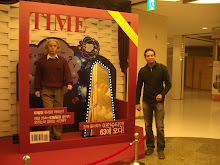In Korea, many institutes offer teacher education: universities of education, colleges of education, general colleges and universities, junior colleges, the Korea National Open University (a broadcast and correspondence university), and graduate schools of education.
Junior colleges and universities of education train most of the kindergarten teachers and primary school teachers, respectively, whereas ordinary colleges and universities teach most secondary school teachers. More than 50,000 prospective teachers are trained annually (Education in Korea, 2009). 
Universities of education and the departments of primary education at the Korea National University of Education and Ewha Women’s University train most primary school teachers. Around 6,000 primary school teachers are currently receiving training at 11 national universities of education. The primary education departments of Korea National University and Ewha Women’s University produce 210 instructors per year. Korea National University of Education changed from being a two year educational institute to a four-year university in 1981, and all other educational colleges followed suit in 1984. Graduate of these universities receive a bachelor’s degree.

While secondary school teachers are mainly taught at teachers colleges, they are also trained in departments of education or teacher training courses at ordinary universities and graduate schools of education. Temporary teacher training centers were once operated to meet the teacher shortage. Today, teachers are only trained through regular school curricula.
A total of 13 national and 28 private colleges of education and general universities produce around 15,000 prospective teachers annually. About 5,000 teachers are also trained at graduate schools of education with the purpose of providing in-service training to teachers. Teacher training courses are also available at 2,913 departments of 152 general universities that produce about 10,000 prospective teachers each year.

College of education require a total of 130-150 credits for graduation, 20 percent of which must be in liberal arts, 60 percent in the major subject, and the remaining 20 percent in electives. The major subject course study requires subject study, subject teaching, general education, and a teaching practicum. Teacher certificates are awarded to graduates upon completion of certain courses of study as prescribed by the Primary and Secondary Education Act and the Education Qualification Inspection Ordinance. Prospective teachers are not required to take an examination to obtain a teacher certificate.
However, public school teachers must take a teacher qualification examination, administrated by metropolitan/provincial offers of education, to be appointed to a school. Private schools selected teachers using their own application processes. The examination for public school teachers is three-tired. The primary examination is a written test on pedagogy (20%) and the chosen subject (80%). The second part of the test is an essay writing portion, and third section consists of a practical test, an aptitude test, and an in-depth interview.







No comments:
Post a Comment